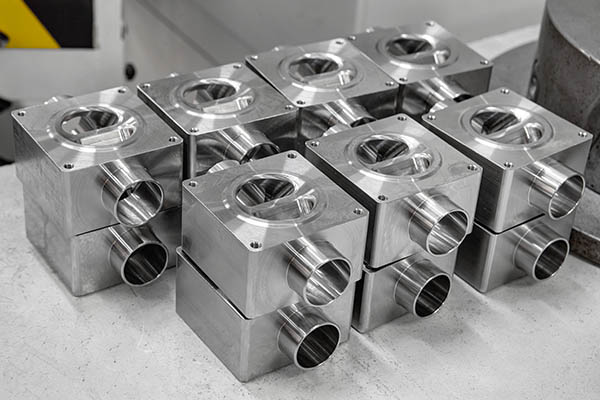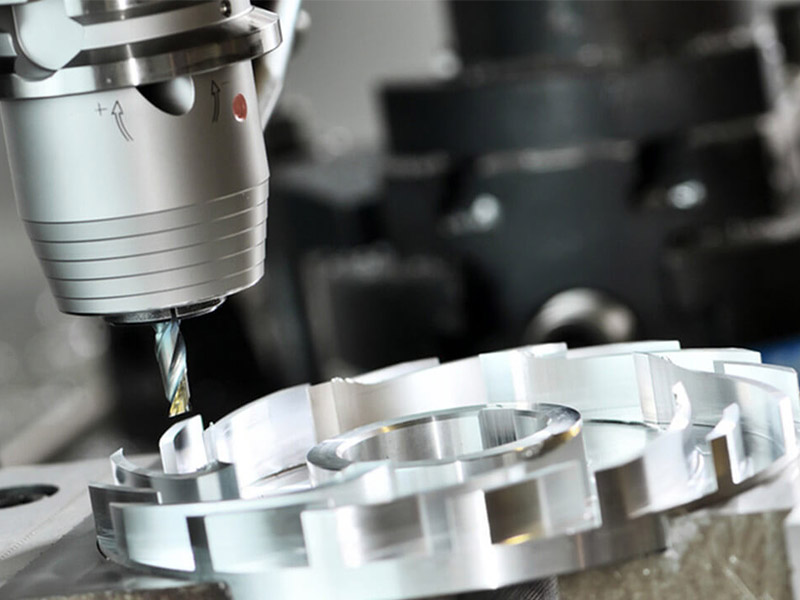CNC Machining: Precision Manufacturing for the Trendy Period
CNC Machining: Precision Manufacturing for the Trendy Period
Blog Article
CNC machine machining is one the most revolutionary technologies used in the modern world of manufacturing. It has changed the fundamental way manufacturing companies produce components and pieces providing a level high-quality, speed and flexibility that's unmatched by traditional methods. CNC machining employs computerized control and machines to carry out various functions like cutting milling, drilling, and grinding on materials ranging from plastics and metals, to wood and composites. By automating the manufacturing process, CNC machining eliminates many problems and inconsistencies related to manual operation. The result is a system which produces high-quality parts more quickly and with greater consistency, stimulating innovation in industries ranging from aerospace to consumer electronics.
One of the major benefits of CNC machining is its ability to make highly detailed and intricate components that are nearly impossible to construct using conventional manufacturing techniques. CNC machines operate based upon digital design, which means that once the design of a piece is programmed into the machine, it is able to be accurately reproduced and consistent. This is particularly beneficial in areas like aerospace, automotive, and electronic industries, where precision is vital. In addition, CNC machining is capable of working with a broad assortment of different types of material, ranging from soft plastics to hard metals, enabling manufacturers to fabricate parts that fulfill specific specifications for durability, strength and resistance to heat. The versatility of CNC processing has led to the possibility of new product designs as well as engineering.
In addition to its precision, CNC machining is also acknowledged for its speed and value. Traditional methods of machining typically need skilled operators to manually regulate and adjust the machinery, which can be time-consuming and costly. CNC-machined machining removes a lot of the manual effort involved in the production process because machines run completely autonomously over long time periods after they have been installed. This permits manufacturers to expand their capacity for production without having to hire additional staff or investment. Also CNC machines can be capable of performing multiple operations in a single setup which reduces the requirement for part transfers and repositioning to save time, and lowers the likelihood of error. The automation results in quicker manufacturing cycles as well as lower cost per part, making CNC machine machining a viable solution for firms trying to optimize their processes for manufacturing.
CNC machines' versatility is a further reason why it is now an essential component of manufacturing today. This technology is compatible using a range of materials, from hard metals such a titanium or stainless steel to plastics and wood. This means that CNC machining is suited for making parts that can be used in many industries including automotive, aerospace, medical, electronics, and consumer goods. In addition, CNC machines can perform various operations like cutting, milling engraving, drilling, and 3D contouring with a single configuration. Multifunctionality eliminates the requirement to have multiple machines as well as part transfers, further increasing efficiency. When it comes to making prototypes or producing huge batches of products, CNC machining offers the flexibility to meet diverse needs in production. To acquire additional details please check important source
One of the issues with CNC machine machining is the initial set-up cost. Investing in CNC equipment and software that is required for it is costly especially for smaller businesses. However, the advantages of CNC cutting-edge technology, like lower expenses for labor, enhanced production efficiency, and improved manufacturing quality - often exceed the first investment. Additionally, many companies provide CNC machines to firms which may not be able to make the investment in their equipment, allowing smaller manufacturers to benefit from the technological advancements without the expense of upfront. Since the need for CNC processing continues to rise, the cost of machinery as well as software is likely to reduce, making it accessible to a wider range of businesses.
It is predicted that the future for CNC Machining is promising, with advancements in technology continuously challenging the boundaries of what the machines are able to achieve. As CNC machines get more advanced, they're increasingly integrated with other technologies like 3D printing and robotics, creating hybrid manufacturing methods that bring together the best of a variety of techniques. Also, the advancement of smart manufacturing and manufacturing with the Industrial Internet of Things (IIoT) is enabling greater connectivity and automation in CNC manufacturing, which allows machines to talk with one to adjust their processes at a real-time rate based on sensor data. As these innovations continue to evolve, CNC machining will remain an essential tool in the evolution of modern manufacturing that will offer even higher precision, speed, and versatility for future generations of products.